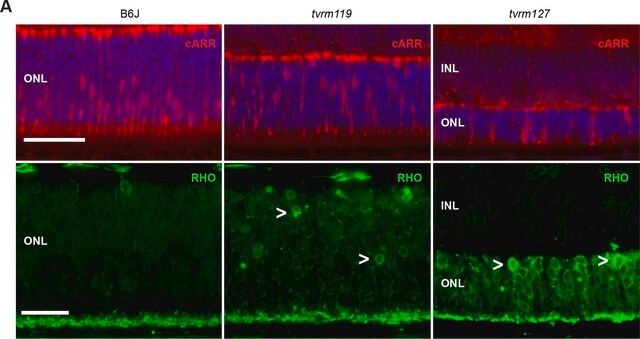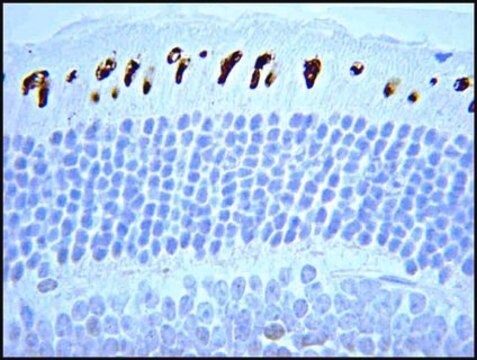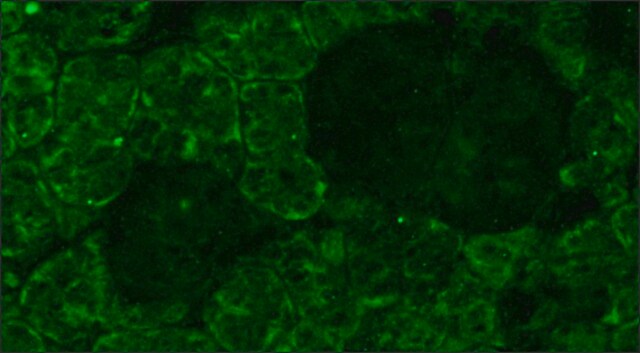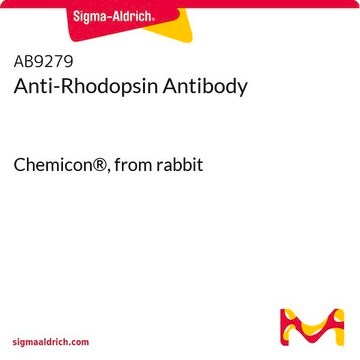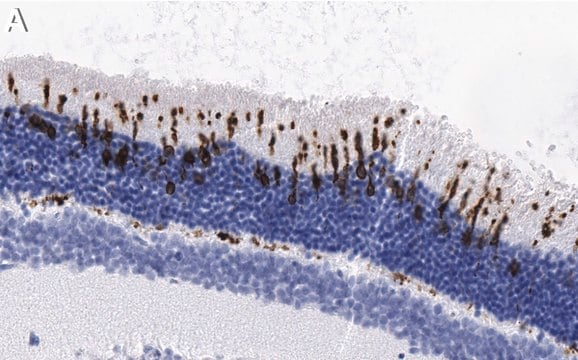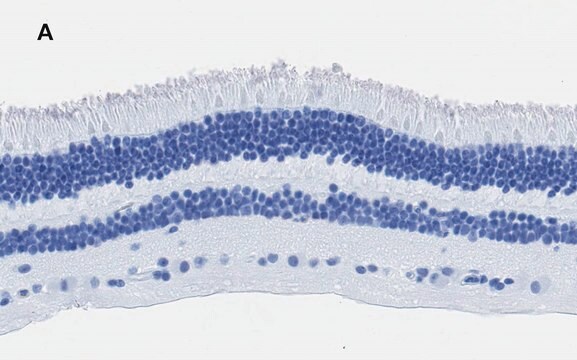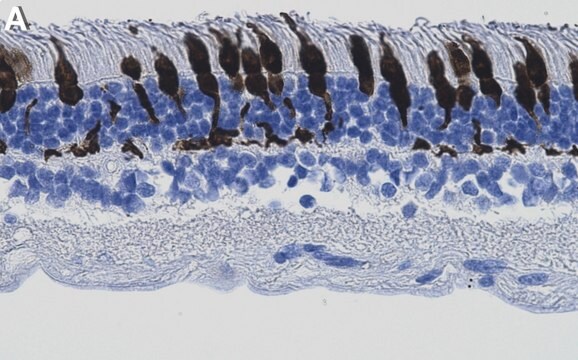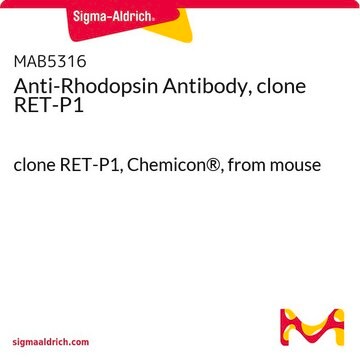MABN15
Anti-Rhodopsin Antibody, clone 4D2
clone 4D2, from mouse
Synonym(s):
rhodopsin, rhodopsin (opsin 2, rod pigment) (retinitis pigmentosa 4, autosomal dominant), retinitis pigmentosa 4, autosomal dominant, opsin 2, rod pigment
About This Item
Recommended Products
biological source
mouse
Quality Level
antibody form
purified immunoglobulin
antibody product type
primary antibodies
clone
4D2, monoclonal
species reactivity
rat, human, fish
species reactivity (predicted by homology)
mouse (based on 100% sequence homology)
technique(s)
ELISA: suitable
immunocytochemistry: suitable
immunohistochemistry: suitable
western blot: suitable
isotype
IgG2bκ
NCBI accession no.
UniProt accession no.
shipped in
wet ice
target post-translational modification
unmodified
Gene Information
human ... RHO(6010)
rat ... Rho(24717)
General description
Specificity
Immunogen
Application
Neuroscience
Sensory & PNS
Immunocytochemistry: A previous lot of this antibody detected Rhodopsin by ICC in goldfish retina tissue, as reported by Knight K, et al
Immunohistochemistry Analysis: 1:500 dilution of this antibody has been shown to detect Rhodopsin in human eye tissue.
ELISA: Specificity of this antibody, from a different lot, was validated in a competitive ELISA, as reported by Laird D, et al.
Quality
Immunohistochemistry Analysis: 1:500 dilution of this antibody detected Rhodopsin in rat eye tissue.
Target description
Physical form
Storage and Stability
Analysis Note
Rat eye tissue
Other Notes
Disclaimer
Not finding the right product?
Try our Product Selector Tool.
recommended
Storage Class Code
12 - Non Combustible Liquids
WGK
WGK 1
Flash Point(F)
Not applicable
Flash Point(C)
Not applicable
Certificates of Analysis (COA)
Search for Certificates of Analysis (COA) by entering the products Lot/Batch Number. Lot and Batch Numbers can be found on a product’s label following the words ‘Lot’ or ‘Batch’.
Already Own This Product?
Find documentation for the products that you have recently purchased in the Document Library.
Our team of scientists has experience in all areas of research including Life Science, Material Science, Chemical Synthesis, Chromatography, Analytical and many others.
Contact Technical Service